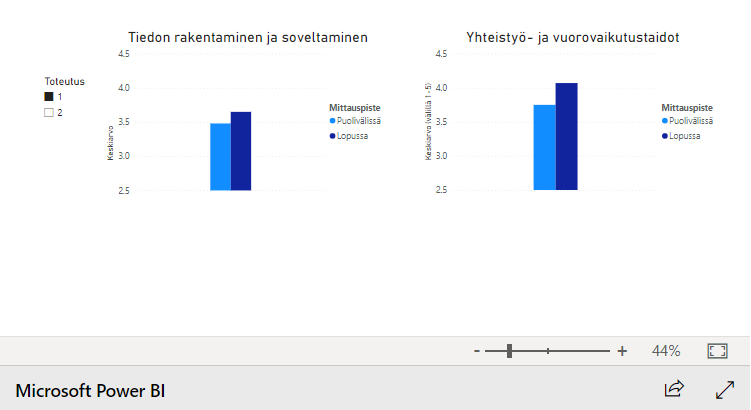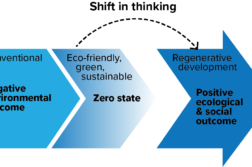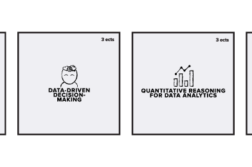The development of future skills has been of particular interest in Design Factory’s implementations, where authentic business collaboration is emphasized as part of the study courses. HAMK Design Factory and HAMK Edu’s LearnWell group have utilized HAMK’s learning experience survey HowULearn in a research-based review of learning future skills.
The concept future skills used by RUN – European University and HAMK is known elsewhere by many different names and definitions; In addition to future skills, the research literature also includes the concepts general working life skills, working life readiness and 21st century skills. Conceptual confusion is understandable when talking about the still unknown future and the skills needed there. Despite the confusion, future skills and their development must be supported in higher education – they are a key part of success in higher education, employment, future working life and the future in general.
According to the 2020 AMK to career monitoring, students who have graduated from a university of applied sciences have deficiencies in, among other things, the development of problem solving, interaction and negotiation skills. The development of these skills can be measured using HAMK’s learning experience survey HowULearn. In its still developing section dealing with future skills, there are two factors formed on the basis of research carried out by the LearnWell group, knowledge construction and application, and collaboration and interaction skills. Building and applying knowledge describes the application of theoretical knowledge to solving practical problems, structuring and detailing knowledge, as well as justifying things and examining them from different perspectives. Cooperation and interaction skills describes cooperation skills, working as a member of a group and presenting one’s own views in various interaction situations.
In a previous joint study by Design Factory and the LearnWell group, it has been found that the aforementioned problem-solving, interaction and negotiation skills play a key role in the success of the student projects carried out in Design Factory’s business collaboration. This is also the case with Design Factory’s 16-week Product Development Project implementation, where multidisciplinary student teams solve product development challenges given by companies and public sector actors.
From 2021, the learning experience survey HowULearn has been used in product development projects, with which students have evaluated their own learning experience and given feedback on the development of the implementation. We examined the answers related to students’ future skills with two Product Development Project implementations, the first of which was organized in the spring of 2021 and the second at the turn of the year 2021–2022. In both implementations, the students responded to the statements measuring the knowledge construction and application of the learning experience questionnaire as well as cooperation and interaction skills after six weeks in the middle of the implementation and after 12 weeks at the end of the implementation.

Figure 1: Average values reported by students in the factors measuring knowledge construction and application, as well as cooperation and interaction skills, in the middle and at the end of the implementations.
From the results (see Figure 1), it can be seen that the development of students’ future skills can be supported during the 12-week study period that includes authentic business collaboration. In the first implementation, the students reported a midpoint average of 3.48 on a five-point Likert scale for the construction and application of knowledge factor. From this midpoint, the average increased by 0.16 units to 3.65 by the end of the implementation. Correspondingly, the average of the factor measuring cooperation and interaction skills increased by 0.32 units from 3.75 to 4.07. The results are also in the same direction with the second implementation, where the mid-point average of 3.44 of the knowledge construction and application factor increased during the last half of the implementation by 0.14 units to 3.58, and the average of the cooperation and interaction skills factor by 0.19 units to 3.67 from to 3.86.
Authentic business collaboration therefore offers students a lot of opportunities to apply their own skills, define problems, solve practical problems and look at things in a versatile way. Maintaining interaction with companies throughout the implementation is, in addition to the success of projects, a key factor in learning cooperation skills and work life practices, as well as creating work life networks. Interaction is also important between teachers and students, because listening to students plays a significant role in the development of teaching. Our most obvious development goal is to clearly communicate this to students in the middle of all this integration of future skills into teaching, the research-based nature of operational development and the evaluation of our own operations.
Authors: Juulia Lahdenperä, Jari Jussila ja Anne-Mari Järvenpää.
Google translated from article originally published in HAMK Beat.



